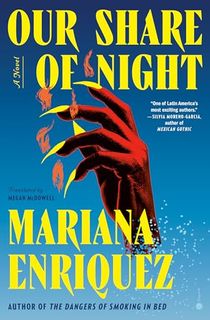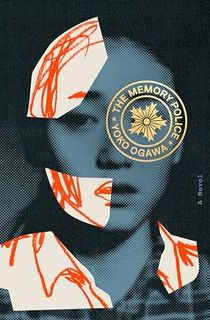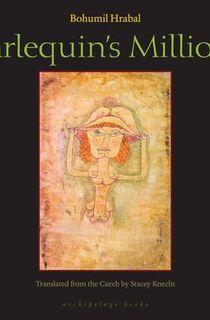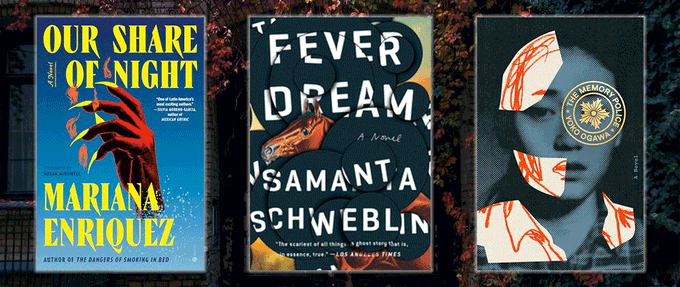Unexplainable events are common horror fodder, but perhaps even more terrifying are events whose source is so diffuse, so unplaceable, that our framework of mortal cause and effect cannot contain it.
The haunted houses is the paradigmatic example of this sort of fear. In Shirley Jackson’s The Haunting of Hill House and other possessed literary corridors, we recoil as a domestic sanctuary closes in around us. A door, a floorboard, and even the air itself feel charged with something willfully sinister.
But the fundamental terror of the haunted house does not come from the ghosts wandering its halls.
Stephen King proves this in The Shining, in which the Overlook’s paranormal twins and gruesome apparitions are ancillary horrors to the all-too-human Jack’s transformation from a loving wife and father into a sadistic killer.
The cavernous hotel collapses in on Danny and Shelley as Jack, who they’re materially dependent on, starts behaving unpredictably. The gendered dynamics of the nuclear family, more than a supernatural force, channel Jack’s evil and diffuse it through the Overlook, holding his family hostage.
The sense of claustrophobia the haunted house inspires can be found in many other places-come-alive. Particularly in Western culture, we feel unsettled when events occur without the intervention of a living individual.
Literature reminds us that places—cities, rives, even whole countries—are possessed of their own power. Read on for 5 horror and other dark novels set in places that teem with unseen forces.

Our Share of Night: A Novel
Set in the decades surrounding Argentina’s Dirty War, a period of brutal state repression that lasted from 1974-1983, Enriquez’s intergenerational saga centers on the machinations of two very powerful families who operate an occultist underground.
The disturbing, inexplicable, and often gruesome horrors that the matriarchs of each family invoke to retain their power are mirrored in the long shadow of their country’s military dictatorship, which disappeared around 30,000 people it deemed enemies of the state.
The dark inheritance of our protagonist, Gaspar—who is tied by blood to the cult through his mother—is made tangible through his family’s riches, which were gained through the brutalities of colonialism.
As Gaspar moves through secret corridors, residential streets, and lands of the dead, they pulse with the sadism of the power-hungry.

The City and the City
Similarly to Enriquez, Mieville’s version of the haunted house is defined by legal borders rather than walls.
In this dark thriller, an investigator named Tyador Borlú sets out to solve what seems like a simple murder, but snowballs into a mystery implicating the omniscient authority that rules over his fictional metropole, Beszel.
Geographically superimposed on this city is a juridically distinct city—Ul Qoma—whose residents are prohibited from seeing each other.
Beszel thrums with the presence of ghostly neighbors, whom Borlú has been trained to forget, as these imagined borders push in on his consciousness, trying to keep him from pushing back.

Fever Dream
Schweblin, another Argentinian writer, turns her attention toward the possession of the natural world in this short, stunning novel about environmental toxicity and motherhood.
This story emerges through Amanda, our narrator, who is dying of a mysterious infection while on vacation in the countryside. In her delirium, her tale twists and ducks in and out of the surreal.
A poison—very physical, but also psychological and spiritual—has taken over Amanda’s being.
As we discover that animals in the area also suffered an infection, we get the sense that whatever has hijacked Amanda’s body has been haunting the earth itself, flowing undetected in the river current and the grass under her feet.

The Memory Police: A Novel
Ogawa’s dark, introspective novel takes place on an island that is progressively disappearing. From the time our unnamed narrator was a child, she remembers waking up every so often with the sense that some aspect of reality has been erased from her mind.
She and her neighbors must then destroy the “missing” objects—birds, perfume, hats—or face the menacing Memory Police—the totalitarian force that controls the disappearances and kidnaps people who are suspected of remembering.
As the disappearances come for more and more important things, the narrator begins to realize just how much her internal and external worlds are connected. Unable to escape from either of them, she clings on to her humanity as her reality fills with holes.

Harlequin's Millions: A Novel
Perhaps the lightest book on this list, Hrabal’s novel, translated from the original Czech, will still scratch the haunted house lover’s itch for the fear of losing autonomy.
Centered on a rural castle that houses an elderly care facility, an old couple live suspended in time, between the world of memories and their fading present.
An eccentric cast of characters, most long dead or gone, accompany the pair in the lonely corridors and gardens of the care home, where every resident is lost in his own dream.
The village the castle overlooks thrums with the echoes of its golden days, like a container for the memories that time will soon strip away from the people who have inhabited it. In the place that Hrabal has conjured, haunting is simply a fact of life and death.
Featured image: Alex Vinogradov / Unsplash





